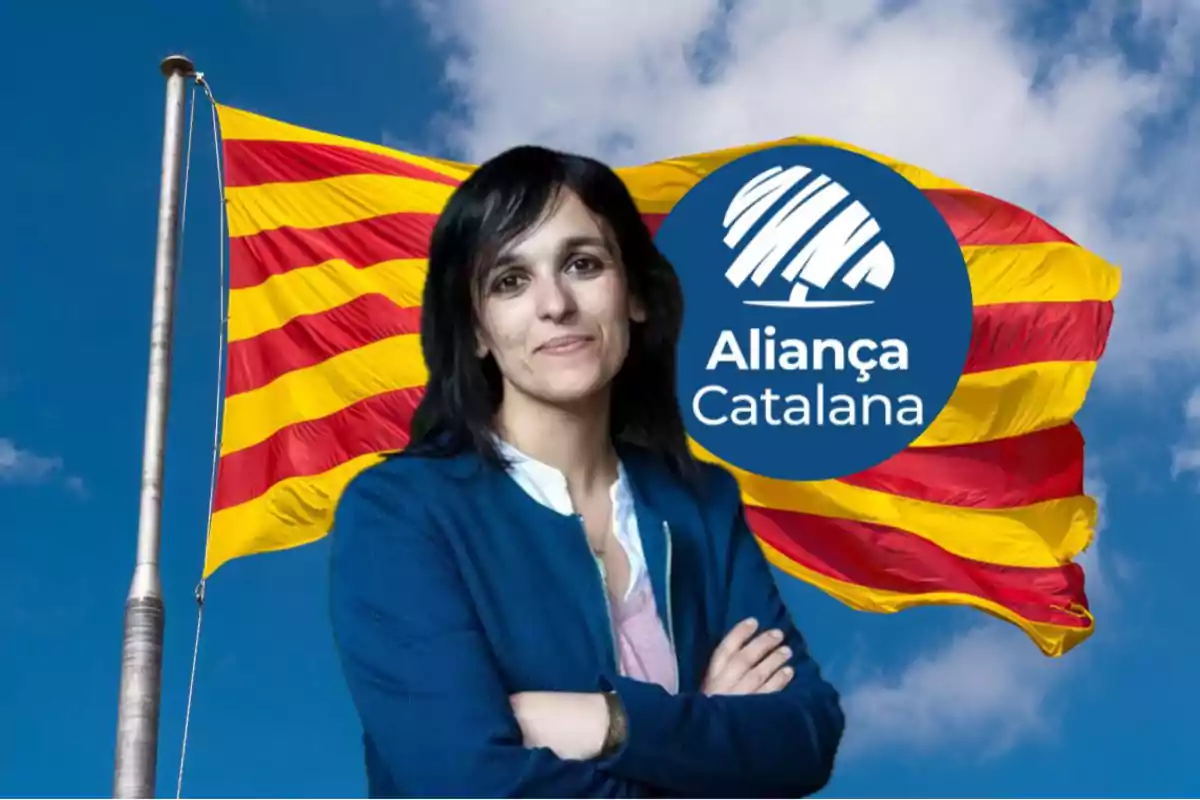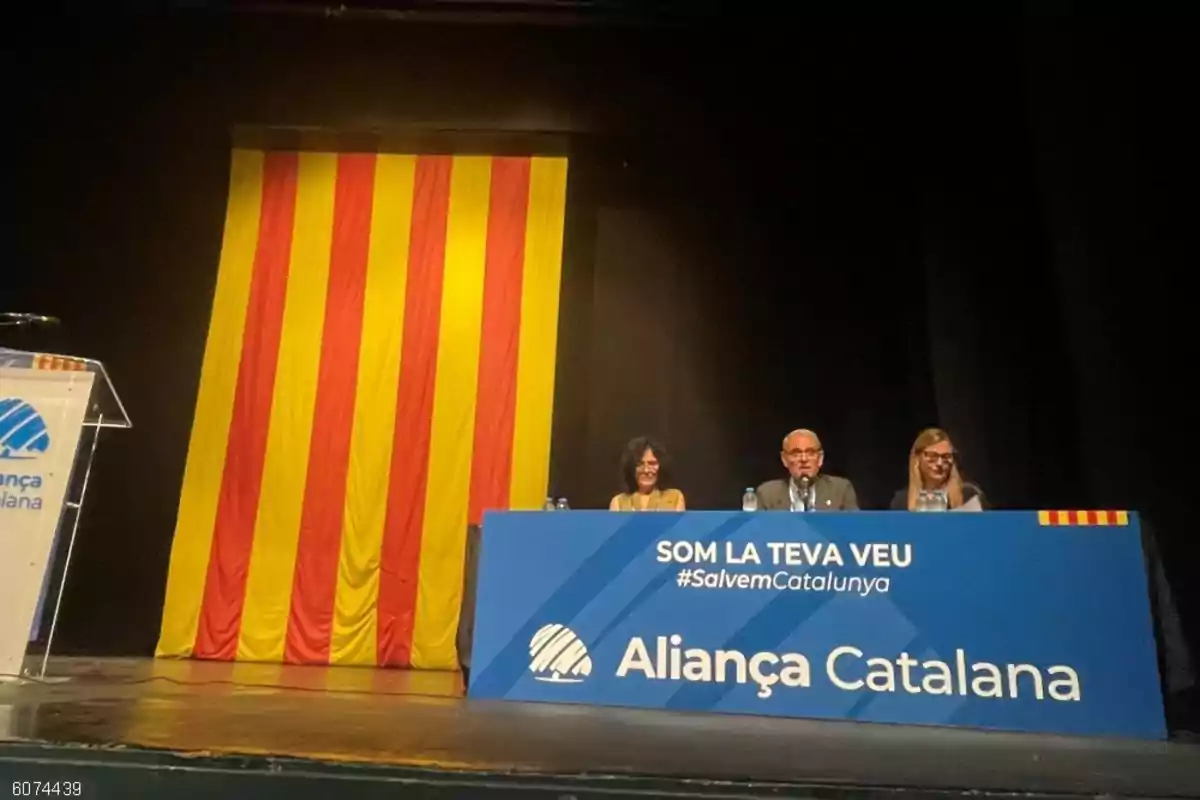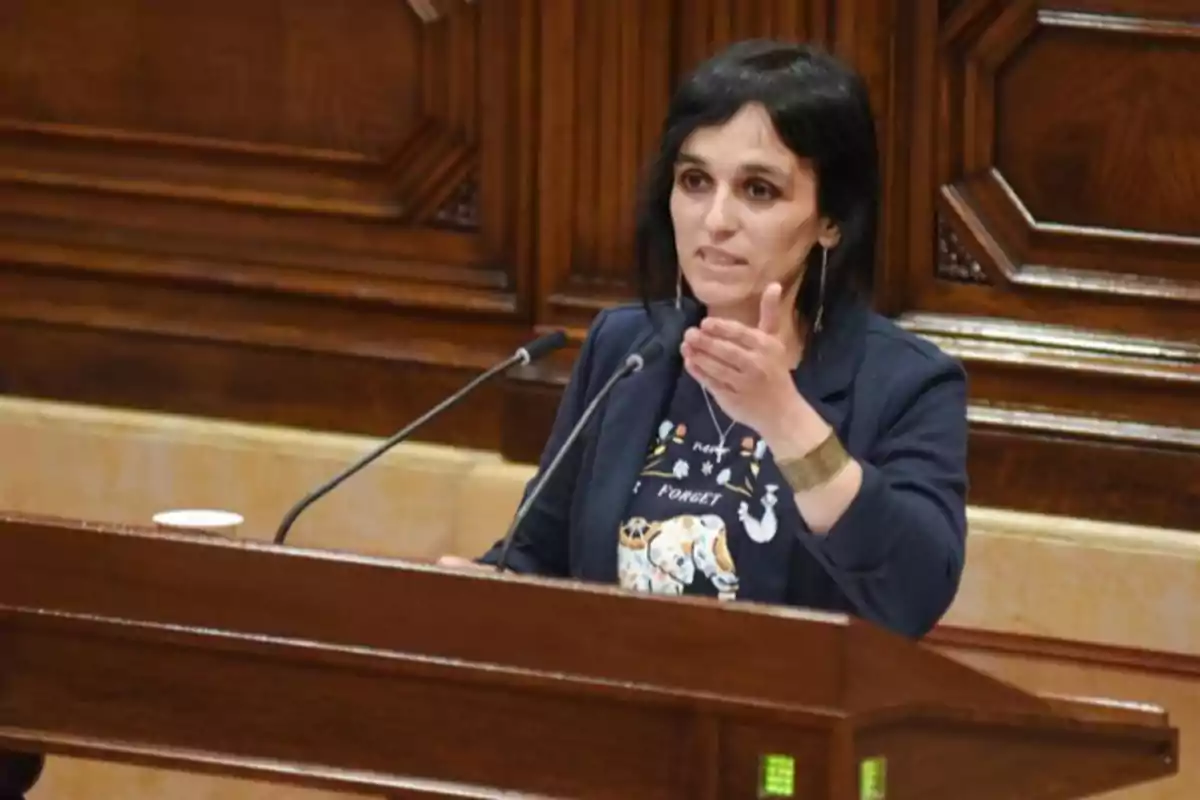
Aliança Catalana delivers a game-changing move: they'd quintuple their seats according to a study
The CEO barometer places the party founded in 2020 by Sílvia Orriols as a key force in Junts's Catalonia
According to the latest barometer from the Centre d’Estudis d’Opinió (CEO), Aliança Catalana would go from its current 2 seats in Parliament to between 10 and 11 deputies. This would mean a fivefold increase in its parliamentary representation. This growth would translate into a voting intention of 6% to 8% (compared to 3.8% obtained in May 2024).
The party achieves this progress especially thanks to the loyalty of its electorate. It also benefits from significant transfers from Junts and PP, with 8% and 7% of their voters, respectively, switching to AC. It also attracts 5% support from Vox and smaller percentages from ERC, PSC, and CUP.
The barometer shows that this rise of AC and Vox would place the far right together with about 20% of the total seats in Parliament, a historically high level for Catalonia.
However, despite this breakthrough, PSC keeps its position as the most voted force, with between 40 and 42 seats. Meanwhile, Junts loses ground (28‑30) and ERC stagnates (21‑23).
This scenario highlights a growing polarization, where Aliança Catalana emerges as a solid option within the right-wing pro-separatism space. But it also shows the persistence of PSC as the central axis of the Catalan political landscape.

Indeed, in a Catalan political scenario marked by the fragmentation of the separatist movement and declining voter turnout, a new player has begun to stand out strongly on the most radical flank of sovereigntism.
This is Aliança Catalana (AC), founded in 2020 by Sílvia Orriols. This party, with an openly separatist and restrictive stance on migration, has managed to establish itself in some rural areas of the territory and gain representation in Parliament.
Its emergence raises relevant questions for the future of Catalan sovereigntism. Especially regarding the reorganization of the separatist right, a space that until now has been scattered among options such as Junts per Catalunya or Front Nacional de Catalunya.
With two deputies in Parliament after the 2024 elections and the mayoralty of Ripoll under its control, Aliança Catalana is showing promise. It is emerging as a factor to be considered in the current legislature and in future local elections.
Aliança Catalana's trajectory begins in the municipality of Ripoll (Girona). There, Sílvia Orriols decided to launch a new political formation after breaking away from Front Nacional de Catalunya.
This is how Aliança was born, with a platform based on the unilateral independence of Catalonia and the rejection of irregular immigration. One essential pillar stands out: the defense of what they describe as "Catalan identity".
In the 2023 municipal elections, AC achieved a significant result in Ripoll. It obtained more than 30% of the votes and was the most voted list. That victory allowed Orriols to become mayor, making her one of the first institutional representatives of a party that until then had had limited reach.

From that position, with a markedly critical stance toward migration policies, the party leader consolidated her profile. She became a leading figure in a new current within the separatist movement.
In the 2024 regional elections, Aliança Catalana made a qualitative leap by obtaining two seats in Parliament. With more than 118,000 votes – 3.8% of the total – and a special presence in the counties of Girona and Lleida.
Although its parliamentary representation is still modest, its growth has been closely watched by both its competitors and political analysts.
A singular discourse within sovereigntism
Aliança Catalana differs from other traditional separatist parties in several respects. It advocates for unilateral independence without negotiation with the State, promotes very restrictive immigration policies, and rejects any form of institutional multilingualism.
In its platform, it argues that Catalan should be the only official language in a hypothetical Catalan republic.
From an economic point of view, the party positions itself as liberal-conservative. It proposes tax cuts and public spending control, but also includes a protectionist component for Catalan companies.

One of the most controversial elements of its discourse is the link it draws between immigration, crime, and the loss of cultural identity. Especially in relation to Muslim communities.
These positions have been criticized by various social organizations and parties for being considered xenophobic and contrary to democratic values. Meanwhile, AC claims that its goal is to preserve the country's social and cultural cohesion.
Repercussions on the Catalan political board
The growth of Aliança Catalana has had repercussions on the rest of the Catalan political spectrum. Especially in Junts per Catalunya, which until now had dominated the separatist right.
Some analyses suggest that AC has attracted votes in rural areas that previously leaned toward Junts or toward independent localist candidates.
Carles Puigdemont's party has so far avoided any kind of collaboration with AC. Some leaders, such as former president Artur Mas, have suggested that it could be useful to keep a political dialogue. However, they have not gone so far as to share strategies or common projects.

Tensions have also arisen at the local level. After AC's victory in Ripoll, some parties proposed a motion of no confidence to remove Orriols. However, in the end, that option was ruled out, among other reasons due to fear of reinforcing what they described as the party's "victim narrative".
In Parliament, Aliança Catalana has been criticized for its limited participation in legislative committees. Orriols has replied that her priority is work in plenary sessions and her role as mayor of Ripoll, and she has questioned the functioning of some committees that she considers "sterile".
A unifying axis for the separatist right?
The possibility that Aliança Catalana could act as a catalyst for a new convergence among the separatist right is a hypothesis that is beginning to gain traction among some analysts.
Although there are currently no formal alliances, its growth is forcing parties such as Junts and even Vox to rethink part of their discourse.
Junts strives to keep a balance between identity-based nationalism and liberal Europeanism. Meanwhile, Aliança Catalana adopts a much more forceful position on identity issues. This allows it to connect with social sectors that feel neglected by traditional parties.

It is in this space, between frustration with the "procés" and unease over demographic changes, that Aliança Catalana has found its electorate.
Unlike other far-right parties, such as Vox, Aliança Catalana supports Catalonia's independence. This places it in a relatively unexplored political terrain: that of far-right sovereigntism. This makes it a complex actor to fit into the usual dynamics of alliances and blocs.
Outlook and challenges
In the medium term, the main challenge for Aliança Catalana will be to consolidate its presence in Parliament and expand its territorial reach. In this regard, Junts has begun to strengthen its municipal structure in areas where AC has shown growth, with the aim of preventing voters from shifting toward more radical options.
On the other hand, AC's positions make it difficult for the party to be integrated into possible governing majorities, which limits its capacity for direct influence. However, its mere presence is already shaping the public debate on issues such as immigration, language, or security. In addition, it puts pressure on the rest of the parties to adopt more defined stances.
More posts: